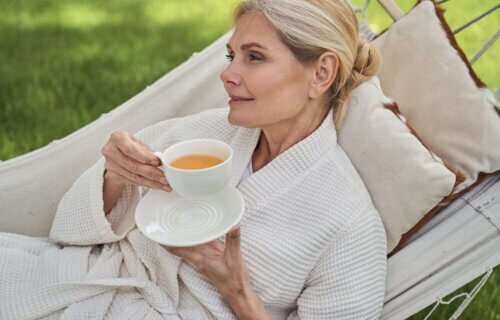Acne is a common skin condition that affects millions of people worldwide. While there are various treatments available, many individuals are turning to natural remedies to combat their acne. One such remedy gaining popularity is tea. Not only does tea offer a soothing and relaxing experience, but certain types of tea also contain properties that can help improve acne-prone skin. This is why we sought out the consensus best teas for acne, according to expert reviews. We’ll also share how they can be incorporated into your daily routine for clearer, healthier skin and hopefully a more confident you!
After all, the average person only feels confident four days a week, and unfortunately, much of that has to do with how their skin looks. A recent survey of 2,000 adults reveals that acne, stretch marks, and surgery scars are just some of the blemishes that people have battled insecurity over for a long time. Two in five adults worry that others will notice imperfections that they notice about themselves, with 56% admitting those feelings have negatively impacted their mental health.
If you still struggle to feel like yourself with your imperfections, there are potential benefits of different types of tea for acne. Some of them include:
- Antioxidants: Tea is rich in antioxidants, which can help protect the skin from damage caused by free radicals. Free radical damage can contribute to inflammation and acne breakouts.
- Anti-inflammatory Properties: Some teas possess anti-inflammatory properties that may help reduce redness and swelling associated with acne.
- Antibacterial Properties: Certain teas contain compounds with antibacterial properties that may help combat acne-causing bacteria.
- Hydration: Drinking tea can contribute to overall hydration, which is essential for healthy skin function. Proper hydration can help regulate oil production and promote skin health.
- Calming Effect: Some teas have calming properties that may help reduce stress and anxiety, which can indirectly impact skin health.
Oh, and did we forget to mention they are pretty yummy, too? Drinking a cup of tea, whether you are doing it for the benefits or not, feels like a warm hug at the end of a long day. That being said, we at StudyFinds, as always, have taken the time to research across eight expert sources to bring you today’s list of the top seven best teas for acne! If you don’t agree with our list or feel we missed out on a good suggestion, no worries! We would love to hear from you and your recommendations in the comments down below. Now, onto the list!
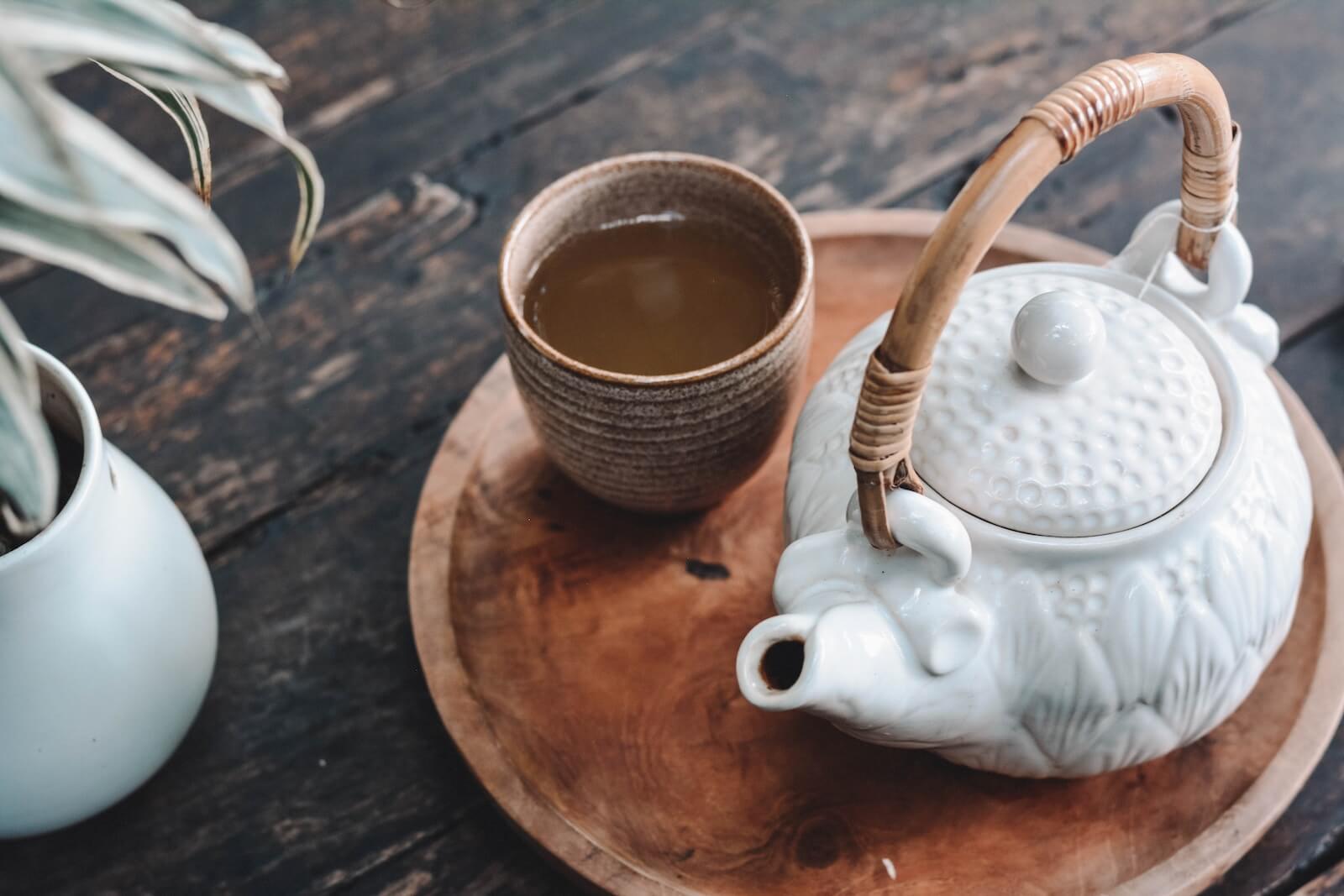
The List: Best Teas For Acne, Recommended By Experts
1. Chamomile
Chamomile tea is a popular herbal infusion that has been enjoyed for centuries due to its soothing properties and delicate flavor. Derived from the flowers of the chamomile plant, this tea is known for its numerous health benefits. “There are several reasons why chamomile tea may be used to treat acne lesions. First up, using the tea bags of chamomile topically can fight acne-causing bacteria because it’s antibacterial. Secondly, even just drinking the tea is beneficial because the plant features astringent and brightening properties. And, lastly, chamomile can also be used to treat pain that results from a hormonal imbalance (like hormonal acne),” says The Daley Dose.
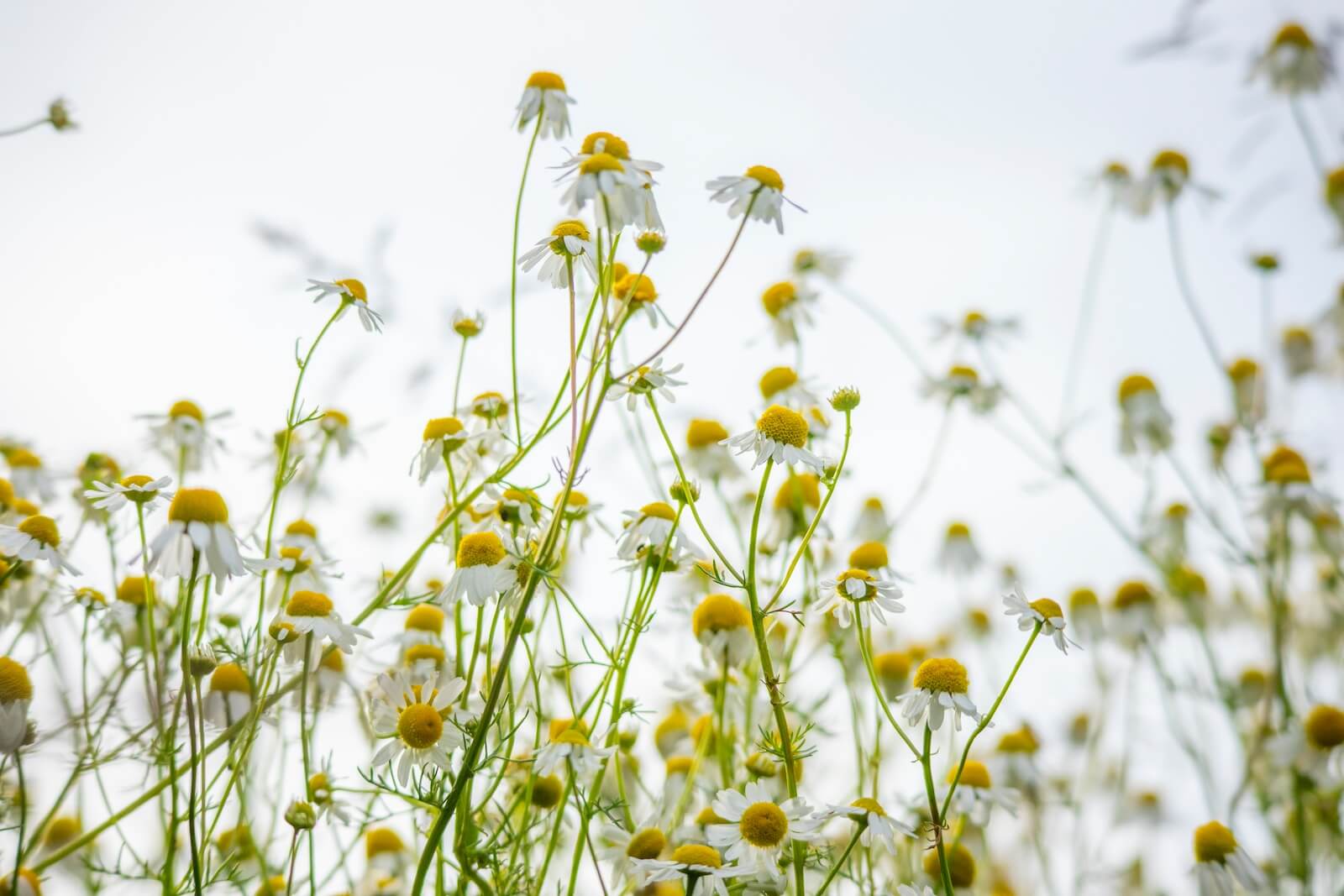
“Chamomile tea is considered one of the best teas for acne because it can provide antioxidant, anti-inflammatory, and antibacterial benefits. Drinking the tea can reduce the severity of acne breakouts, and topically applying the tea can also help relieve acne symptoms. Cold chamomile tea bags can be pressed on pimples to reduce the swelling and redness,” adds Banish.
“Chamomile is a soothing nervine tea that helps to relax the body and mind. It is most commonly found in sleepy time blends, but this tea can really be consumed at any time of day. It shouldn’t make you overly sleepy, just relaxed and calm. It also has anti-inflammatory properties and is very soothing for the gut, which makes it helpful when it comes to healing acne as inflammation in the body and gut can aggravate acne,” states Dr. Amelia Patillo.
2. Rooibos
Rooibos tea is an herbal infusion that originates from the plant Aspalathus linearis. This unique tea is renowned for its vibrant red color and earthy flavor, making it a beloved beverage around the world. “Although it’s not one of the most well-known teas out there, rooibos tea is a superhero when it comes to clearing acne—you can thank the three potent antioxidants this mushroom tea contains: nothofagin, aspalathin and superoxide dismutase, all of which help protect against free radicals that can make your acne worse. According to some experts, you can drink up to six cups of rooibos tea a day,” writes The Daley Dose.
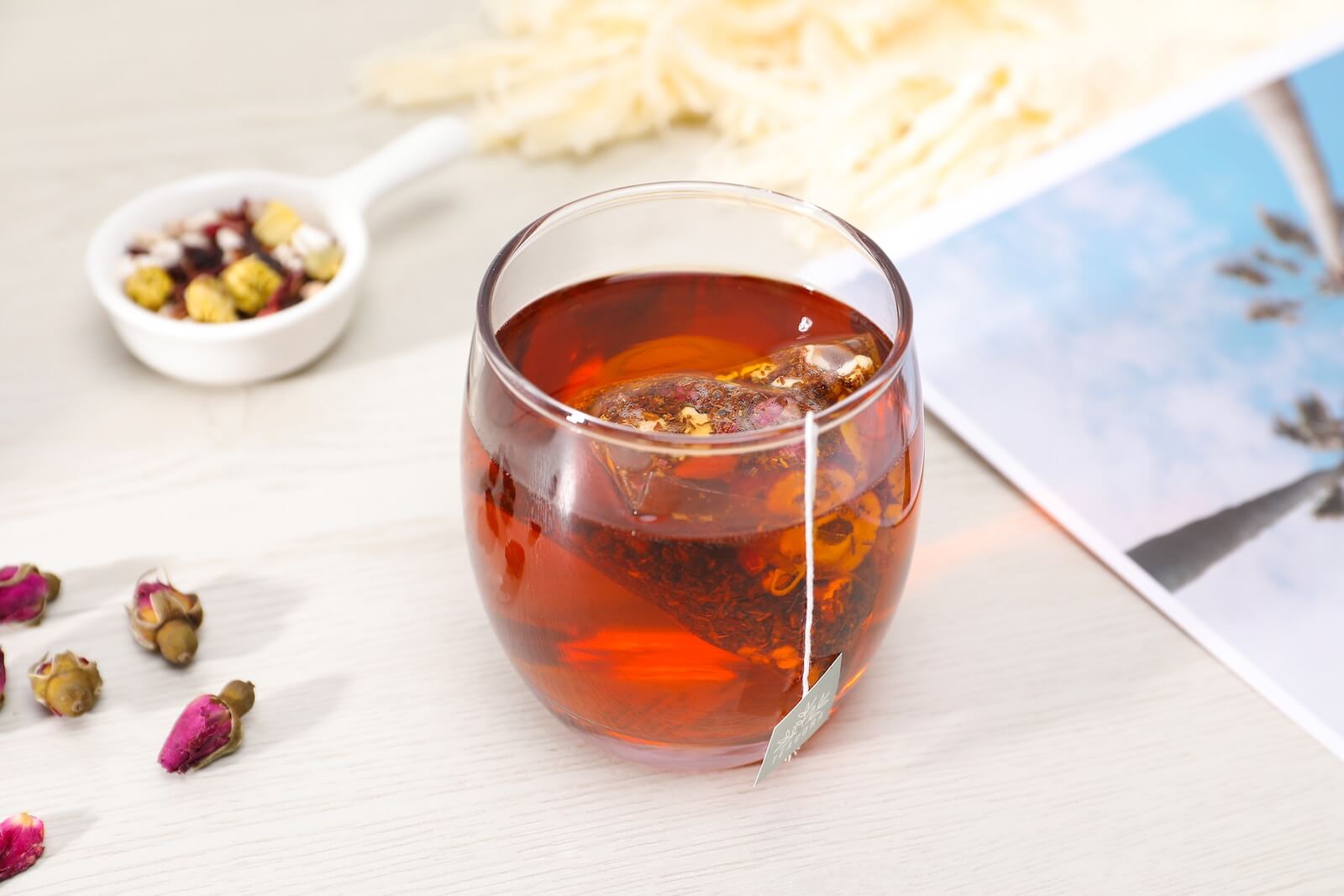
“Rooibos tea is an excellent choice for dryness. It leaves the skin moist and supple, and it’s a wonderful caffeine-free alternative, too, if you’re not one to opt for that. Again, the tea’s main skin-saving qualities come down to the antioxidant profile,” notes Mind Body Green.
“Also called ‘red bush tea,’ rooibos is a South African tea variety with a smooth, nutty flavor. Like other teas, rooibos is packed with antioxidants that help prevent free radical damage and slow down premature aging. Rooibos also comes bearing zinc, a mineral that can help preserve your skin’s youthful appearance and a Zincentially acne-triggering hormonal imbalances,” comments Averr Aglow.
3. Spearmint
Spearmint tea, also known as Mentha spicata, is a popular herbal infusion that has been enjoyed for centuries. With its refreshing taste and numerous health benefits, it has become a beloved beverage in many cultures around the world. “If you tend to get hormonal acne, reach for minty tea like Spearmint tea. The menthol in it can help improve hormonal imbalances and slow the production of excess sebum on the skin. This tea encourages cell turnover, gets rid of dead skin cells, and makes your skin stay consistently glowing,” explains Rich Skxn.
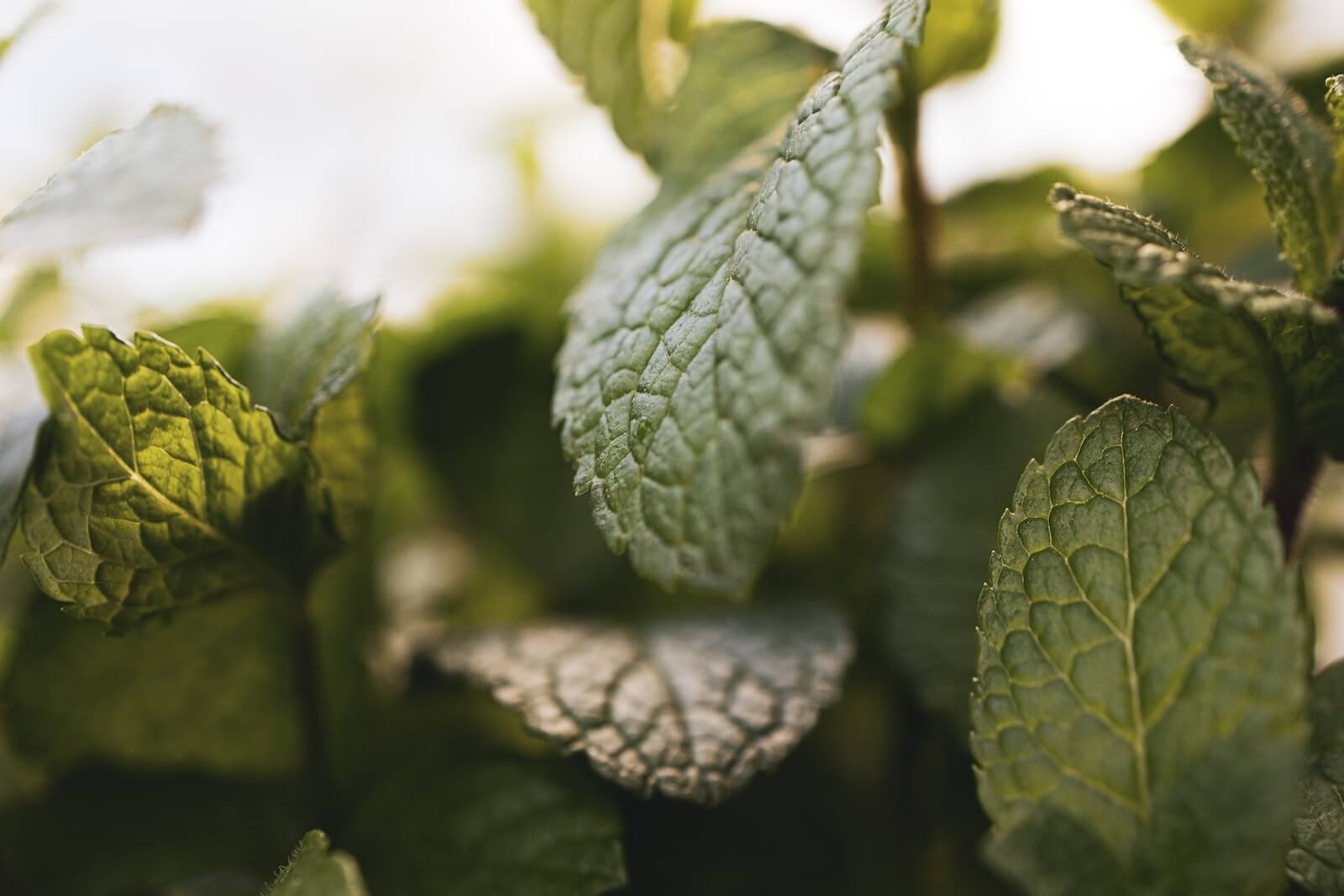
“Spearmint tea is one of the best teas for acne because it is anti-androgenic and known to prevent a hormonal imbalance that could trigger acne breakouts. If your acne is due to an excess of male sex hormones like testosterone and androgen, then spearmint tea is worth a try,” adds Banish.
“Research has shown that drinking 2 cups of spearmint tea a day (must be spearmint, and not peppermint) can reduce elevated levels of testosterone in women. Elevated testosterone and androgen levels are one of the main drivers of hormonal acne in adult women. Lower levels of testosterone lead to decreased sebum production, which results in fewer breakouts,” mentions Dr. Amelia Patillo.
4. Stinging Nettle
Stinging Nettle tea has gained popularity for its numerous health benefits. Derived from the leaves and stems of the stinging nettle plant, this tea has been used for centuries in traditional medicine practices around the world. “Nettle,” also known as stinging nettle or Urtica Dioica, is another tea for hormonal acne. Nettle has anti-inflammatory, testosterone-lowering, and blood sugar-lowering effects. A study on 40 women with elevated androgen levels found a significant decrease in total testosterone and free testosterone levels. Due to its testosterone lowering effect, nettle can help to reduce excessive sebum production because of downregulating DHT,” describes Composed Nutrition.
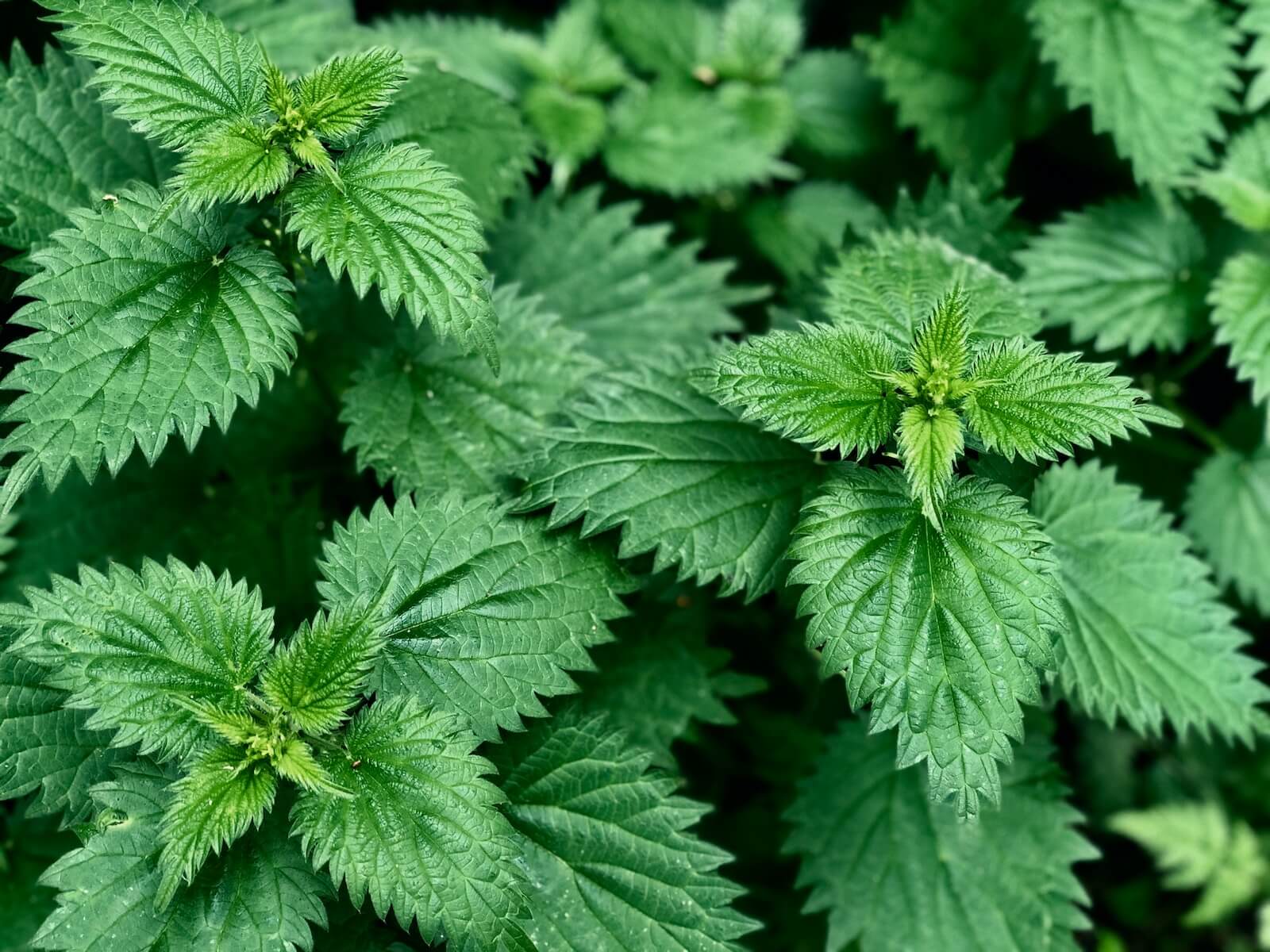
“This tea is thought to purify and detoxify the blood, which naturally clears the skin right up. This tea is rich in B vitamins, vitamin K, selenium, and zinc. These factors combine to help give the drinker clearer skin. Using plant extracts on skin containing stinging nettle resulted in decreased acne, most likely due to the anti-inflammatory and antibacterial properties of stinging nettle,” reports Banish.
“Nourishing for the skin and contains high levels of nutrients such as calcium, iron, potassium, magnesium, vitamins A, B, and C. It is also high in amino acids and acts as a gentle detoxifier as it has diuretic properties to flush toxins out of the body,” raves Dr. Julie Clark.
5. Dandelion Root
Derived from the roots of the common dandelion plant, this tea has been used for centuries in traditional medicine practices. With its earthy flavor and potential health-boosting properties, Dandelion Root tea has become a go-to beverage for those seeking a natural remedy for various ailments. “Dandelion root is excellent at supporting detoxification and can help stimulate the gut. Many people with acne struggle with sluggish detox pathways, and dandelion can help to improve the function of these pathways and the clearance of toxins. The bitter taste of dandelion root can help stimulate digestive secretions such as stomach acid, bile, and digestive enzymes to help optimize the entire digestive system,” says Dr. Amelia Patillo.
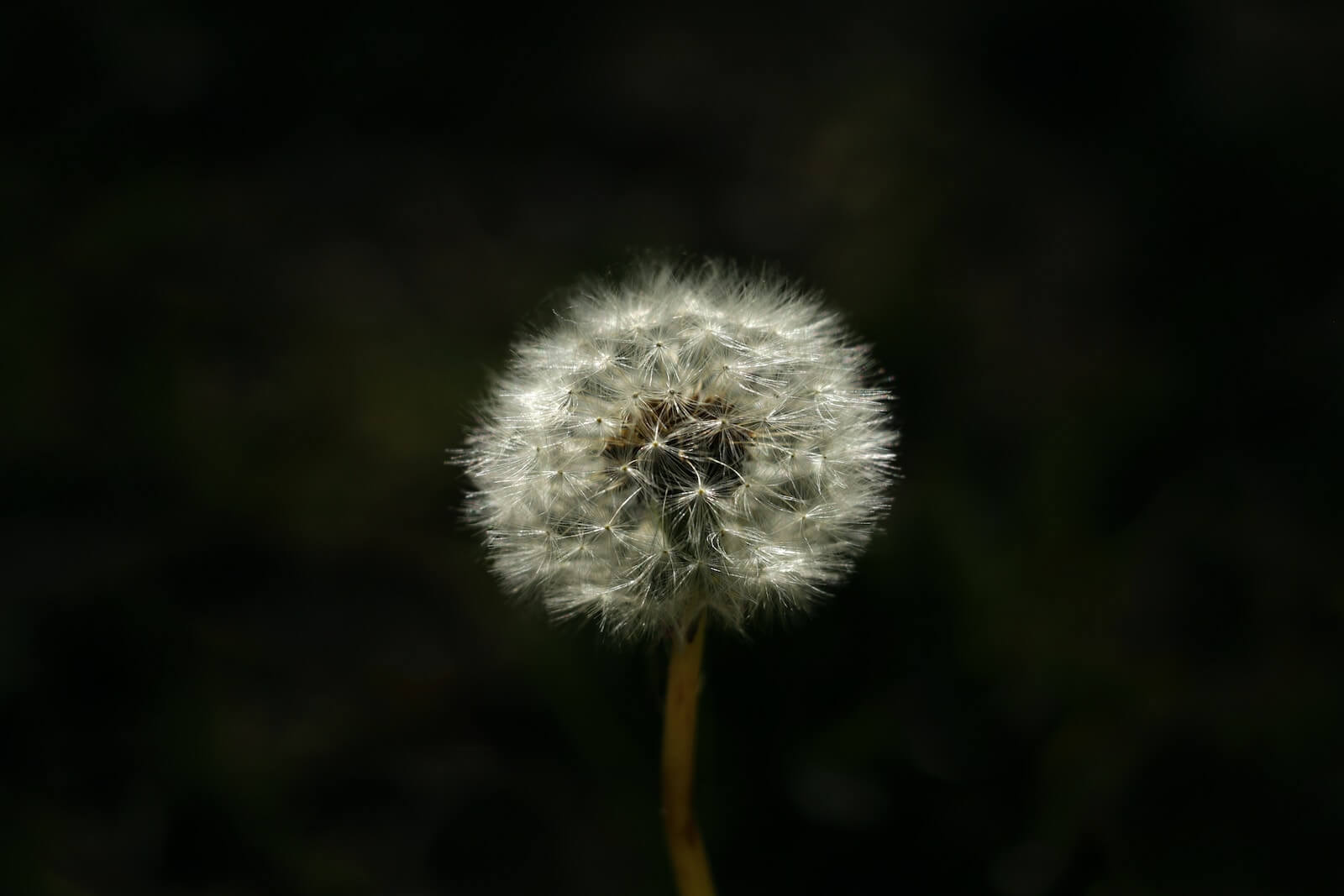
“This herb has actually been used medicinally for centuries. Native Americans used it to promote skin health, and some of today’s herbalists and naturopathic doctors recommend it for the same purpose. Dandelion is thought to help the skin by improving liver function, which cleans the blood and removes toxins from the body. Dandelion root also contains a ton of antioxidants, which help prevent premature aging, as well as vitamins A, B, C, and the minerals iron, potassium, and zinc, which all support clear skin,” adds Banish.
“Dandelion root tea helps support proper liver detoxification and is beneficial to naturally lower testosterone. The liver plays an important role in breaking down and clearing hormones, especially estrogen. When estrogen is properly excreted, it will prevent recirculation, which results in balanced testosterone levels. It was found that the dandelion root is beneficial to promote the granulosa cell growth, which are the main functional cells in the ovaries. By promoting these cells, this means that ovulation can improve, and ovulation occurs when hormones are balanced and functioning correctly,” describes Composed Nutrition.
6. Green
Originating from China, green tea is made from the leaves of the Camellia sinensis plant, which are minimally processed to preserve its natural compounds. Unlike black tea, green tea is not fermented, allowing it to retain higher levels of antioxidants and polyphenols. “Out of all the acne-attacking teas on this list, green tea tends to be the highest in epigallocatechin gallate (EGCG), which is a natural compound that’s an antioxidant. Research has shown that, whether taken orally or used topically, green tea can help prevent breakouts and clear up acne scars. Since green tea contains a small amount of caffeine, health professionals suggest drinking between three and five cups a day,” notes The Daley Dose.
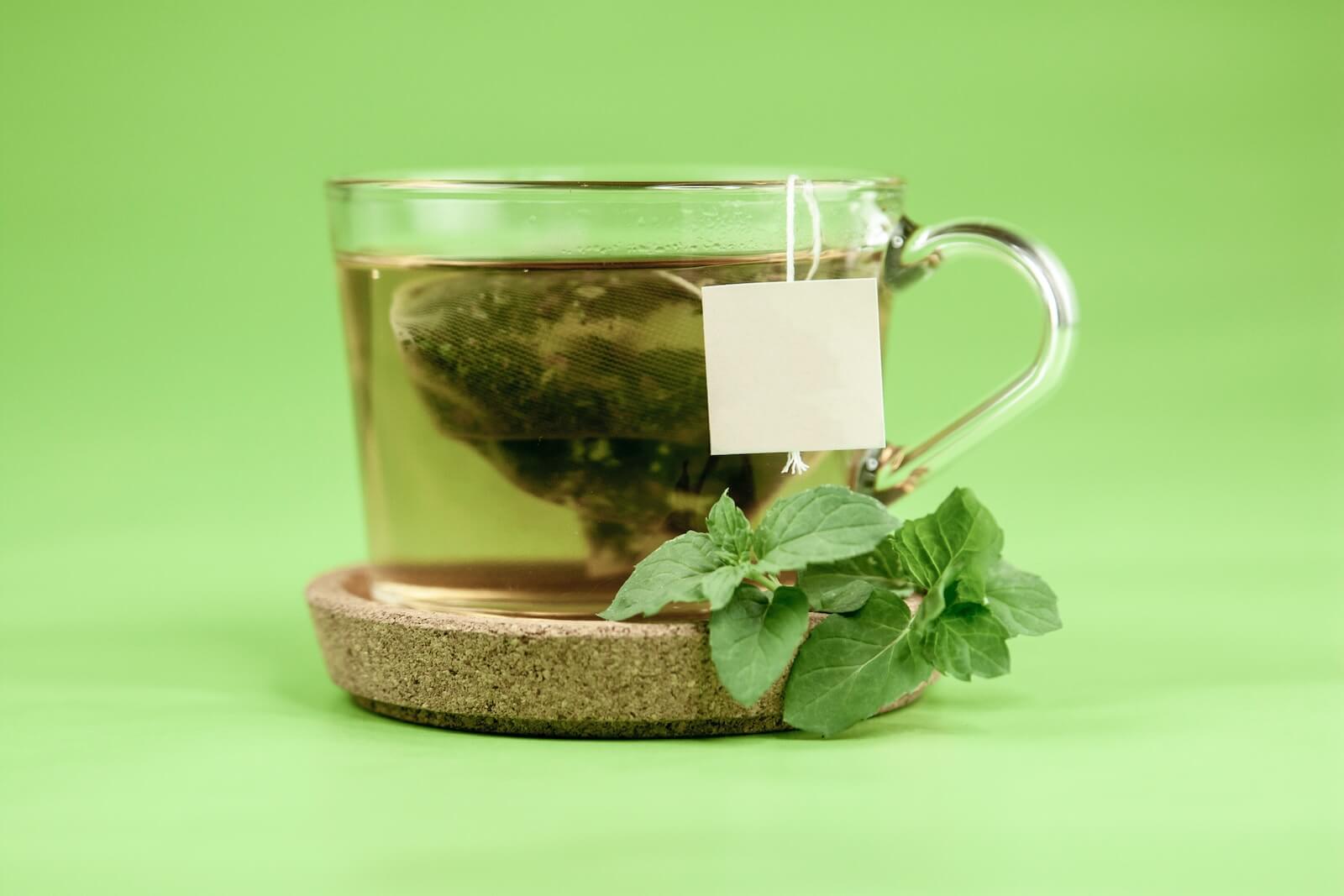
“There’s a reason green tea has such a long history of use. It’s widely regarded as one of the best all-around’ superfoods,’ packed with antioxidants that reduce inflammation. Topical use of green tea reduces sebum production, gets rid of oiliness, and protects against acne-causing bacteria. For rosacea sufferers who have sun sensitivity, green tea decreases the skin’s reactivity to UV light,” explains Mind Body Green.
“Green tea is considered the Powerhouse of all teas for acne. But does green tea really help with acne? The short answer is yes! Green tea contains multiple antioxidants, including EGCG, carotenoids, tocopherols, ascorbic acid, and selenium, which are responsible for promoting skin health by preventing oxidative damage due to harmful free radicals, making green tea effective for reducing acne,” withstands Banish.
7. Ginger
Ginger tea is a popular herbal beverage that has been enjoyed for centuries due to its numerous health benefits and refreshing taste. Made from the root of the ginger plant, this tea is known for its strong and distinct flavor, with a subtle spiciness that adds a delightful kick to every sip. “When you’re searching for an anti-inflammatory tea, look no further than ginger. The fact that it’s anti-inflammatory also makes it perfect for addressing acne, seeing how it can help reduce the redness of any lesions. It can also help your skin’s elasticity and texture. Unlike the other teas on this list, of which you can drink at most three cups, ginger tea can be consumed in quantities up to four cups a day. You can drink ginger tea during the day or at night, but make sure not to overdo it,” comments The Daley Dose.
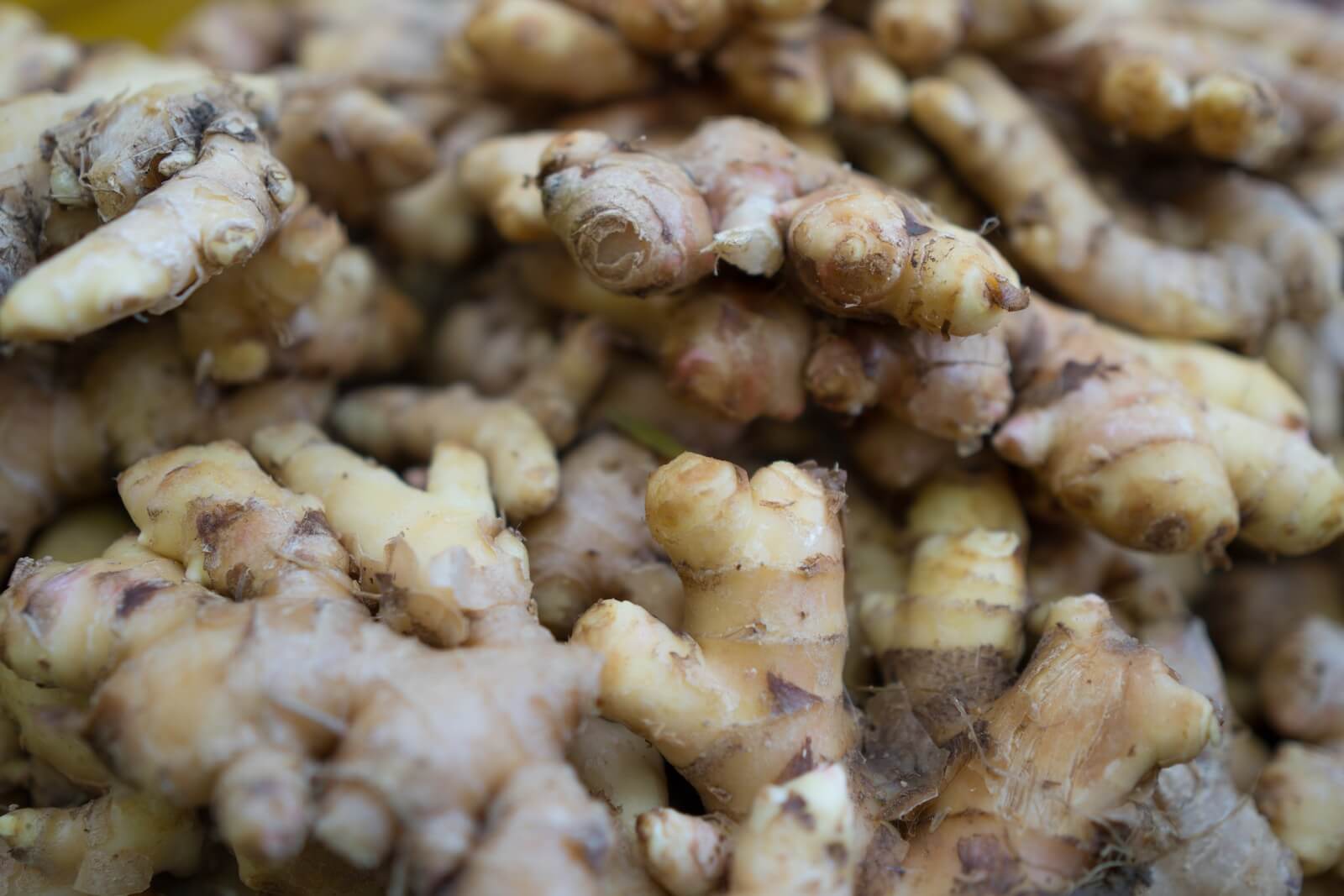
“Ginger has potent anti-inflammatory and antioxidant benefits; it also supports digestion by promoting stomach acid secretions. Low stomach acid is linked to an increased risk of having acne. Ginger has antiseptic properties, meaning it can banish acne-causing bacteria,” reports Dr. Julie Clark.
“Ginger is well known for soothing an upset stomach, but it could also benefit those with acne too! This is because ginger contains over 30 gingerol compounds that have antioxidant and anti-inflammatory properties. Ginger tea can be made by boiling a spoonful of chopped ginger in water for a minute; you can also apply the liquid topically so the anti-inflammatory properties go directly to the skin. If you have been having digestive issues and are dealing with more pain and redness on your skin, ginger may be a good choice for you to try out,” concludes Banish.
You might be interested:
- Best Tea For Stress
- Best Tea For Sore Throat
- Best Black Tea
- Best Green Tea
- Best Starbucks Hot Tea Drinks
Sources
- Banish
- Dr. Amelia Patillo
- The Daley Dose
- Mind Body Green
- Averr Aglow
- Composed Nutrition
- Dr. Julie Clark
- Rich Skxn
Note: This article was not paid for nor sponsored. StudyFinds is not connected to nor partnered with any of the brands mentioned and receives no compensation for its recommendations. This page contains affiliate links.
